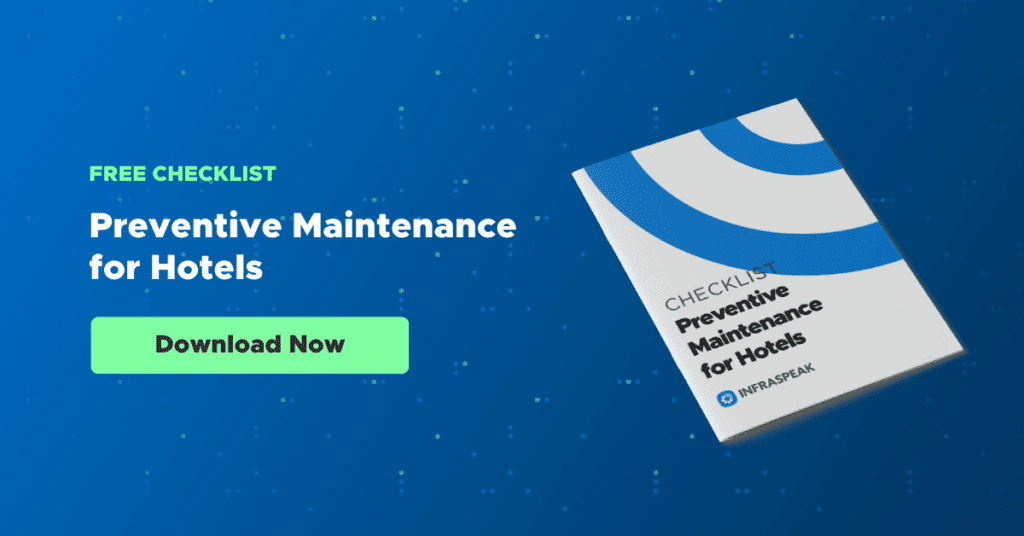For years, hotel maintenance has been seen as a “necessary evil”. It was mostly reactive maintenance, which only came into play when something was damaged. Minor repairs to plasterboard walls, painting walls stained by suitcase wheels, substitution of damaged TVs, replacing towel racks, fixing water leaks, and unclogging toilets. However, having a reactive attitude with all the equipment in your hotel can be expensive. This is where preventive maintenance for hotels comes in.
When it comes to hospitality, preventive maintenance has several advantages. The first is to offer more safety to everyone who uses the hotel, as it prevents outbreaks of legionella and other public health problems (and by the way, you can also improve the safety your hotel conventions with contactless event check-in and capacity control tools). The second is to provide a more pleasant stay for your guests, as it significantly reduces unscheduled downtime. The third is a longer useful life of the equipment, which provides a higher return on investment.
The prospect of more safety, better service quality, and savings in maintenance should be enough to sharpen your interest in preventive maintenance for hotels. But how? A 2005 study performed in hotels from one of our favourite holiday destinations – the Algarve – indicates that 4-star hotels have an average of 5.7 maintenance staff. In 5-star hotels that number rises to 18.8 (as if there were doubts that maintenance also contributes to top service!).
Maintenance teams, which include engineers, electricians, plumbers, carpenters, gardeners, housekeeping, and multipurpose maintenance technicians, make up a relatively small percentage of employees. Many hotels resort to outsourcing for the maintenance of lifts, HVAC equipment, and swimming pools, for example. This does not mean that you should not have a general maintenance program, with some monitoring activities in charge of your internal team.
Start by surveying equipment that needs preventive maintenance. Then, plan more in-depth maintenance for the low season, so as not to disturb normal hotel activity. Finally, determine what services you need to subcontract to another company and which ones are performed by your team. We’ll give you a helping hand! We have prepared a maintenance checklist for hotels so that you can:
- better plan your maintenance activities;
- help your maintenance team to fulfil all essential tasks on a daily basis;
- evaluate the activities to be carried out with any external suppliers.
The checklist includes a list of preventive maintenance tasks for hotels for the following equipment:
- Lifts and docks
- Air handling units
- Cooling towers
- Chillers
- Boilers
- Industrial kitchens
- Electrical installation
- Generators
- Industrial laundry
- Water points and plumbing
- Swimming pools and spas
- Gymnasiums
- Solar panels
- Fire pumping station and other safety services
- Gardening and outdoors
- And preventive tasks to provide greater comfort to your guests.
We give you a suggestion on how often you should perform each task and some extra predictive maintenance tips for hotels. If you have any HVAC equipment that is not on this list, remember that you can also consult our HVAC Maintenance Checklist.


